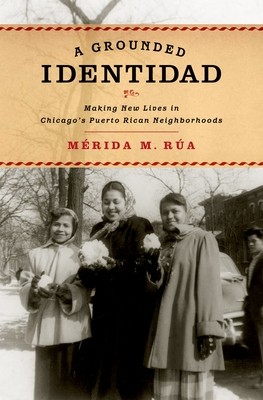
- We will send in 10–14 business days.
- Author: Merida M Rua
- Publisher: Oxford University Press (UK)
- ISBN-10: 0199760268
- ISBN-13: 9780199760268
- Format: 14.7 x 22.4 x 1.5 cm, kieti viršeliai
- Language: English
- SAVE -10% with code: EXTRA
Reviews
Description
Chicago is home to the third-largest concentration of Puerto Ricans in the United States, but scholarship on the city rarely accounts for their presence. This book is part of an effort to include Puerto Ricans in Chicago's history. Rúa traces Puerto Ricans' construction of identity in a narrative that begins in 1945, when a small group of University of Puerto Rico graduates earned scholarships to attend the University of Chicago and a private employment agency recruited Puerto Rican domestics and foundry workers. They arrived from an island colony where they had held U.S. citizenship and where most thought of themselves as "white." But in Chicago, Puerto Ricans were considered "colored" and their citizenship was second class. They seemed to share few of the rights other Chicagoans took for granted. In her analysis of the following six decades--during which Chicago witnessed urban renewal, loss of neighborhoods, emergence of multiracial coalitions, waves of protest movements, and
everyday commemorations of death and life--Rúa explores the ways in which Puerto Ricans have negotiated their identity as Puerto Ricans, Latinos, and U.S. citizens.
EXTRA 10 % discount with code: EXTRA
The promotion ends in 23d.22:01:00
The discount code is valid when purchasing from 10 €. Discounts do not stack.
- Author: Merida M Rua
- Publisher: Oxford University Press (UK)
- ISBN-10: 0199760268
- ISBN-13: 9780199760268
- Format: 14.7 x 22.4 x 1.5 cm, kieti viršeliai
- Language: English English
Chicago is home to the third-largest concentration of Puerto Ricans in the United States, but scholarship on the city rarely accounts for their presence. This book is part of an effort to include Puerto Ricans in Chicago's history. Rúa traces Puerto Ricans' construction of identity in a narrative that begins in 1945, when a small group of University of Puerto Rico graduates earned scholarships to attend the University of Chicago and a private employment agency recruited Puerto Rican domestics and foundry workers. They arrived from an island colony where they had held U.S. citizenship and where most thought of themselves as "white." But in Chicago, Puerto Ricans were considered "colored" and their citizenship was second class. They seemed to share few of the rights other Chicagoans took for granted. In her analysis of the following six decades--during which Chicago witnessed urban renewal, loss of neighborhoods, emergence of multiracial coalitions, waves of protest movements, and
everyday commemorations of death and life--Rúa explores the ways in which Puerto Ricans have negotiated their identity as Puerto Ricans, Latinos, and U.S. citizens.


Reviews